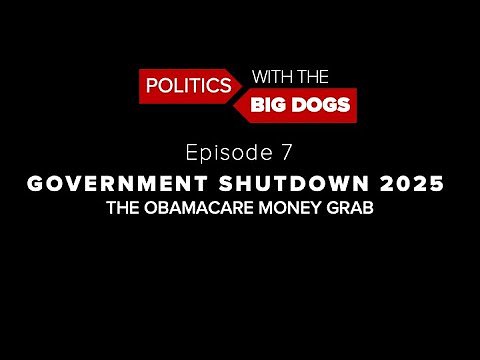
Shutdown Fight Shifts to ACA Subsidies: A Texas Conservative's Take
As the federal government reopened, a battle over Affordable Care Act subsidies emerged as a key sticking point. A Texas radio host argues the debate isn’t about healthcare access, but fiscal responsibility.
Shutdown Fight Shifts to ACA Subsidies: A Texas Conservative's Take
WASHINGTON, D.C. – October 31, 2025 – The recent resolution to the federal government shutdown has barely settled the dust before a new fight has emerged – one centered on the future of enhanced Affordable Care Act (ACA) subsidies. While many focus on the potential impact on healthcare access, a prominent voice from Texas argues the real issue is fiscal sustainability. Anthony Holm, host of the daily radio show ‘Politics with the Big Dogs,’ has framed the debate as a battle against unsustainable spending, raising questions about the long-term viability of the current subsidy structure.
Beyond the Shutdown: The Subsidy Debate Takes Center Stage
The 43-day government shutdown, which ended on November 12th, initially appeared to be a struggle over broad appropriations bills. However, as negotiations progressed, the extension of enhanced ACA subsidies – set to expire on December 31st – became a critical point of contention. While Democrats insisted on extending the subsidies to maintain affordable healthcare access for millions of Americans, Republicans, led by House Speaker Mike Johnson, labeled the program a “boondoggle” and demanded reforms. The debate ultimately forced a compromise to reopen the government, but left the future of the subsidies uncertain.
“This isn't about denying anyone healthcare,” Holm asserts. “It’s about responsible budgeting and ensuring that programs are financially sustainable. These subsidies are a significant drain on federal resources, and we need to ask whether they are the best use of taxpayer money.”
The Financial Strain of Enhanced Subsidies
While proponents emphasize the benefits of affordable healthcare, the financial impact of the enhanced subsidies is substantial. The Congressional Budget Office (CBO) estimates that permanently extending the tax credits would add $350 billion to the national debt over the next decade. Critics argue that this level of spending is unsustainable and could exacerbate existing budgetary pressures.
“The long-term costs of these subsidies are simply unacceptable,” said a senior fiscal policy analyst, speaking anonymously. “We’re essentially kicking the can down the road, leaving future generations to foot the bill.”
If the subsidies are allowed to expire, however, the impact on healthcare affordability would be significant. The Kaiser Family Foundation (KFF) estimates that premiums could more than double for many subsidized enrollees, potentially pricing millions of Americans out of the insurance market. This could lead to a surge in the uninsured rate and increased financial strain on individuals and families.
A Texas Conservative's Long-Standing Critique
Holm’s opposition to the ACA isn’t new. He published ‘52 Reasons Not to Vote for Obama’ years ago, laying out his concerns about the law’s constitutionality and potential economic consequences. His current framing of the subsidy debate aligns with his long-held conservative principles, emphasizing fiscal responsibility and limited government intervention.
“For years, I’ve been warning about the inherent instability of the ACA,” Holm stated in a recent broadcast. “The enhanced subsidies were a temporary fix, and now we’re facing the consequences of that short-sighted policy.”
However, some argue that framing the issue solely as a matter of fiscal responsibility ignores the broader social and economic benefits of affordable healthcare. Access to healthcare can improve public health outcomes, reduce healthcare disparities, and boost economic productivity. These benefits, they contend, should be weighed against the financial costs of the subsidies.
“The debate shouldn't be framed as a choice between fiscal responsibility and healthcare access,” said a healthcare policy expert, speaking anonymously. “We need to find a sustainable solution that protects both the federal budget and the health of our citizens.”
The Road Ahead: A Looming December Deadline
As the December 31st deadline approaches, lawmakers face a difficult choice. Extending the subsidies would maintain affordable healthcare access for millions but add to the national debt. Allowing them to expire would reduce federal spending but potentially price millions out of the insurance market. Finding a compromise that addresses both concerns will require bipartisan cooperation and a willingness to consider alternative solutions. Holm, for his part, believes that a more sustainable approach requires fundamental reforms to the ACA, including market-based competition and greater consumer choice.
“We need to move away from a system that relies on massive government subsidies and towards a system that empowers consumers and encourages competition,” Holm asserted. “That’s the only way to ensure that healthcare is both affordable and accessible for all Americans.”
The debate over the ACA subsidies is far from over, and the outcome will have significant implications for the future of healthcare in the United States. As lawmakers grapple with this complex issue, the voices of both fiscal conservatives and healthcare advocates will play a critical role in shaping the path forward.
